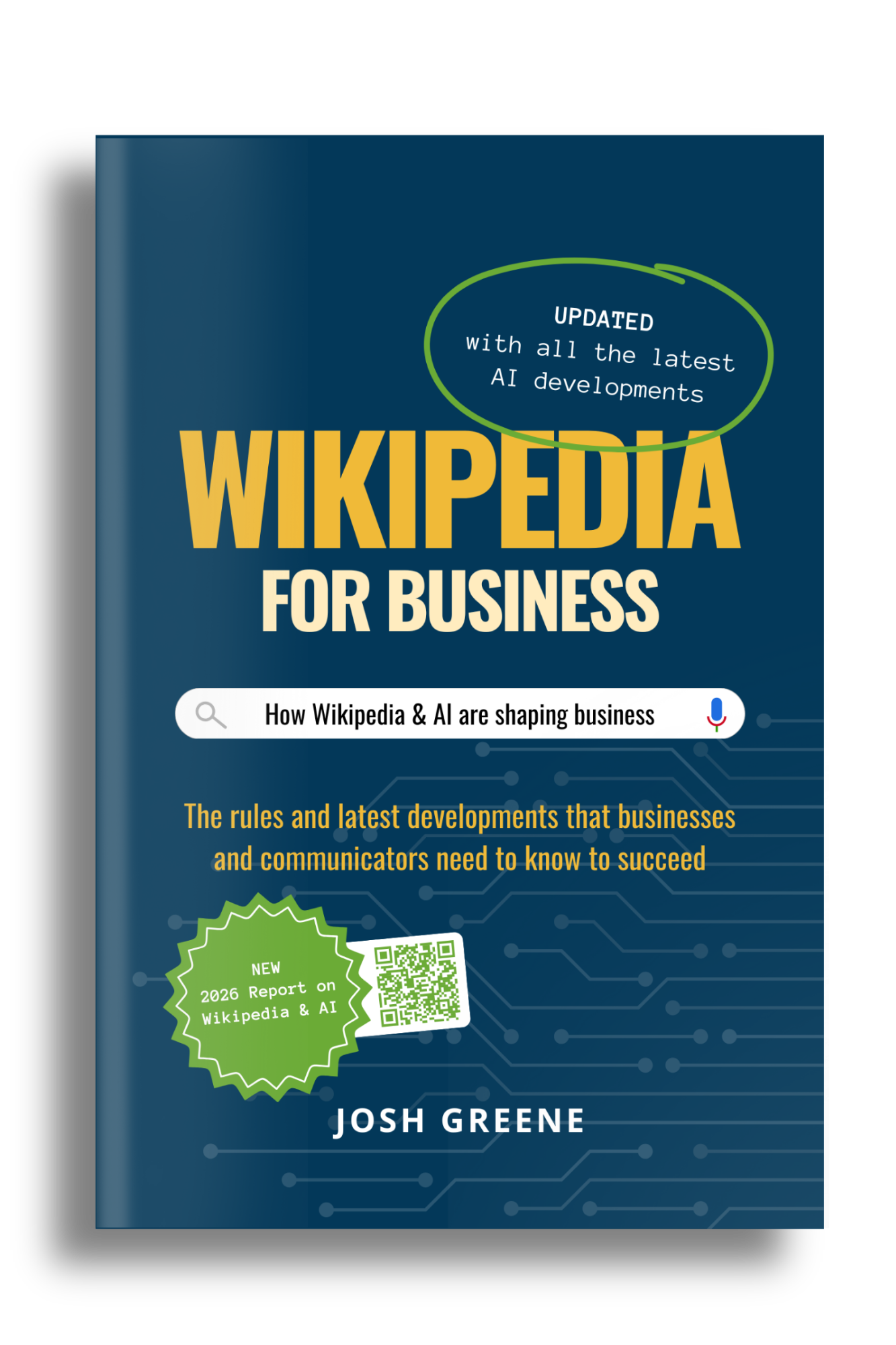We're here to help you work with Wikipedia
Get ready to take control of your Wikipedia presence
Your Wikipedia page is reaching and influencing your ideal audience even if they never visit Wikipedia. Wikipedia pages appear in Google’s featured snippets 10 times more than any other website, they are almost always a top 3 search result, and Siri and Alexa reference pages to answer voice searches. If you don’t keep your page updated and user-friendly, there can be negative consequences.
However, Wikipedia is not a marketing platform. Understanding its unique rules and working with its many editors takes expertise, time, and patience. We help to align Wikipedia pages and SEO goals for some of the largest Fortune 1000 companies, international brands and consultancies, and high-profile non-profit organizations. Together our services are designed to grow and protect your brand, evolving as your brand and the landscape evolves.
Schedule a Call
Why Wikipedia matters for organizations
Wikipedia is one of the most used and powerful research tools online. It’s read daily by millions of potential investors, employees, job candidates, prospective clients, passionate researchers, would-be scholars, and everyone else.
Top 3 Search Result
Search for any keyword, person, or place on Google. If there’s a Wikipedia page for it, it’s almost always a top 3 result.
People Also Ask
People ask Google and Wikipedia answers. Many PAA answers are pulled from Wikipedia pages.
Knowledge Panels
Most knowledge panel descriptions come straight from Wikipedia pages, and link back to those pages to give people more information.
Voice Search & AI
Siri, Alexa, and many AI tools reference Wikipedia’s millions of articles to answer people’s questions.
1B+ Monthly Views
Wikipedia is the second most visited website both in the world and in the U.S. with over a billion views each month.
Carousel Search Results
The right information on Wikipedia can be the difference between being in a carousel search result and losing your place to a competitor.
How does Wikipedia actually work?
Wikipedia is an online encyclopedia and crowdsourced platform. That means there is user-generated content and the platform is largely governed by the users themselves. Continued success depends on thousands of engaged Wikipedians keeping pages factual and up-to-date. Each editor has their own passions and biases, which can make editing and managing Wikipedia pages more difficult than sneaking past the Sphinx.
The fate of your page is in the hands of whoever decides to show an interest. For these editors, your page doesn’t exist to make your organization look good. It exists to give millions of readers a comprehensive, high-level summary of who you are, what you’re doing and what you’ve done.
So what can you do with Wikipedia?
To recap:
- Wikipedia is powerful and influential.
- It’s definitely affecting your brand's reputation.
- It can’t be directly or tightly controlled by your PR and marketing teams.
- It can be influenced by any person on the planet with access to the Internet.
So when it comes to Wikipedia, you can’t leave your online presence to chance.
We help you:
- Learn how a brand can interact with Wikipedia, what the limits are, and what the proper channels are to influence change.
- When appropriate, update your brand’s page(s) with relevant Wikipedia-friendly content.
- Create new encyclopedic content that improves Wikipedia’s knowledge base about your topic.
- Understand how to monitor, maintain and manage your brand’s Wikipedia pages over time.
- Learn what to do when your brand’s Wikipedia page has significant content reversions or is tagged as an issue by the editor community.
- Learn how to navigate the complicated history of a Wikipedia article.
- Track and understand how Wikipedia is changing over time and how that impacts your strategic priorities.
Wikipedia FAQs
No one can “freeze” a Wikipedia page and ensure it will never be deleted or changed. Wikipedia is maintained by a global volunteer community and is an open source project. Any page can be changed at any time by any one. Working within Wikipedia’s guidelines, and learning how to collaborate with other Wikipedians reduces the risk of reversions.
Start slowly by studying Wikipedia’s guidelines before you do any drafting. Learn how Wikipedians determine notability, verifiability, and neutrality. You can also ask questions of more experienced editors. When you’re ready to write, you’ll want to do so from a neutral point of view, and draft content using reliable, third-party sources.
There is no specific timeline for creating or improving a Wikipedia page. It depends on a lot of factors, including how much third-party, reliable, notable coverage exists for the subject matter – and how much time you have to research and draft!
Notability is a fundamental Wikipedia requirement. If you’re wondering if your subject matter meets the requirement, take some time to research. Is the subject discussed significantly in multiple reputable, third-party publications by people not associated with the subject (i.e. no conflict of interest)? If yes, they sound ready for a page!
Negative content is not uncommon, while it may be undesired. Wikipedia isn’t a marketing or a promotional platform. If something negative has happened in a company or a person’s life, that content can be added to a Wikipedia page if it is noteworthy enough. With that said, all content must be verifiable, properly sourced, and written in a neutral manner, and pages should be balanced and factually accurate.
Yes! As Wikipedia pages are living documents, liable to be edited at any time, it is important to monitor them to track changes and keep information current.
Wikipedia highly influences everything from LLMs like ChatGPT and Gemini, to Google search results, and Knowledge Panels. Its widespread visibility affects overall brand perception, and makes it a critical resource to monitor.
We literally wrote the book on Wikipedia

